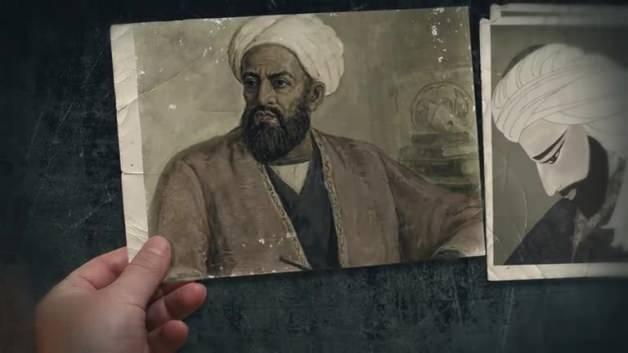
I was not aware, but I had begun to take on the soul and spirit of the Persian so deeply that Iranians who would meet me could not understand why a European would do what I was doing. I would walk hours on foot in unbearable heat to find mosques, bazaars and narrow streets where I could find meaning. I had fallen in love with Persia and while I did manage to drown my ego in a shallow pond, my love for Farsi and the people who spoke it distracted me. A concept or technique used to spiritually elevate one’s self, that all the great Islamic mystics and sufis preached, including Rumi, Mohammad Iqbal and of course al-Ghazali. I had one goal that now seemed almost impossible: to rid or destroy as much of my ego as possible. I thought of myself and my comforts constantly, but only romanced with the idea of true self-sacrifice. This was a spiritual journey for sure, but one without preparation or plan.

Allah bir kuluna iyilik imam gazali how to#
After six weeks in Iran my Farsi had improved and was fluent, but I had not learnt how to decipher the meaning of my journey in Iran. They say travel makes you wise, but I had only learnt the wisdom of this everyday world – a knowledge that meant little to me. I was accumulating hundreds of miles but was oblivious to the benefits being bestowed upon me. I visited Yazd (the city of the Zoroastrians), Shiraz (the ‘city of Love and Hafez’), Tabriz and many others, including Hamedan (where Ibn Sina ‘Avicenna’ is buried). I spent four weeks in Isfahan and by the end was incredibly eager to travel to the corners of Iran. My own spiritual crisis had begun years earlier, but only now was I able to gather enough strength and will to consider where I would be at the end of it. My plan was to spend two or three months in Iran, where I would study but also spend a lot of time in the mosques and madrasas. In the summer months of 2018, I travelled to Iran under the pretext of studying Farsi in Isfahan, a city known as ‘ Half the World’ (Naqsh-e Jahan), a title well-earned, given the city’s size, rich history and majestic Islamic architecture. You must wipe it clean of the veil of dust that has gathered upon it, because it is destined to reflect the light of divine secrets.” Imam al-Ghazali “Dear friend, your heart is a polished mirror. In his later life al-Ghazali was even seen and revered as a saint. He left as a teacher and returned as a man focused on helping others avoid mistakes he himself had made. He would return to his old life but only after he had undergone a major transformation. He performed the Hajj and then spent years working to resolve what he saw as an illness of his ego that had turned him into a hypocrite. At the peak of his career he underwent a spiritual crisis that would see him take a decade long break during which he would travel the Muslim world. Put simply, no other Muslim during his time held the authority he did when it came to matters of Islam. I leave it to the curious reader to research and understand the importance this man plays in our lives – particularly if one is of the Muslim or Christian faith (Thomas Aquinas, the Catholic theologian and philosopher, was heavily influenced by al-Ghazali).Īl-Ghazali, at the peak of his career, held the “ most prestigious and most challenging” professorial at that time, at the Nizamiyya Madrasa in Baghdad. I will not attempt to summarise his life, nor his works. He lived a thousand years ago in the city of Tus under the great Seljuq Empire and spent much of his life teaching and reviving, what he believed, was a ‘lost’ Islam.Īl-Ghazali is a giant. It is not an understatement to say he was, and still is, the most prominent Muslim philosopher, theologian, jurist and mystic of Sunni Islam that has ever lived.

The most famous, and perhaps the most profound is ‘Hujjat al-Islam’ – ‘Proof of Islam’. Abu Hamid Muhammad Ibn Muhammad Al-Ghazali died at the age of 53.


 0 kommentar(er)
0 kommentar(er)
